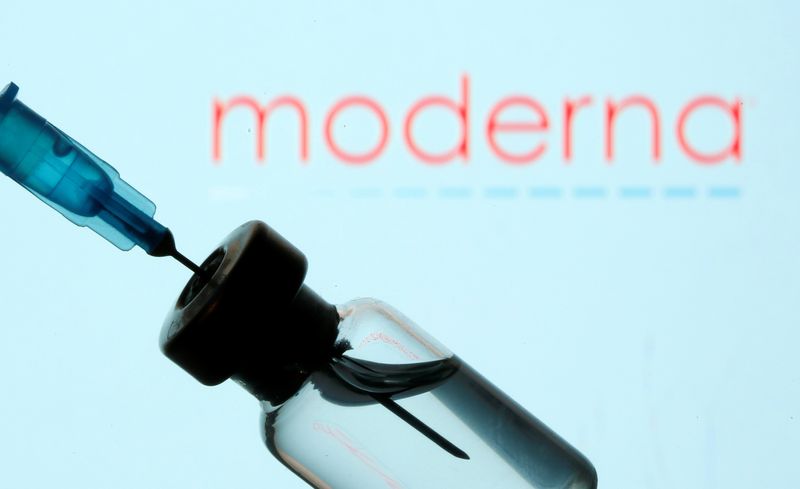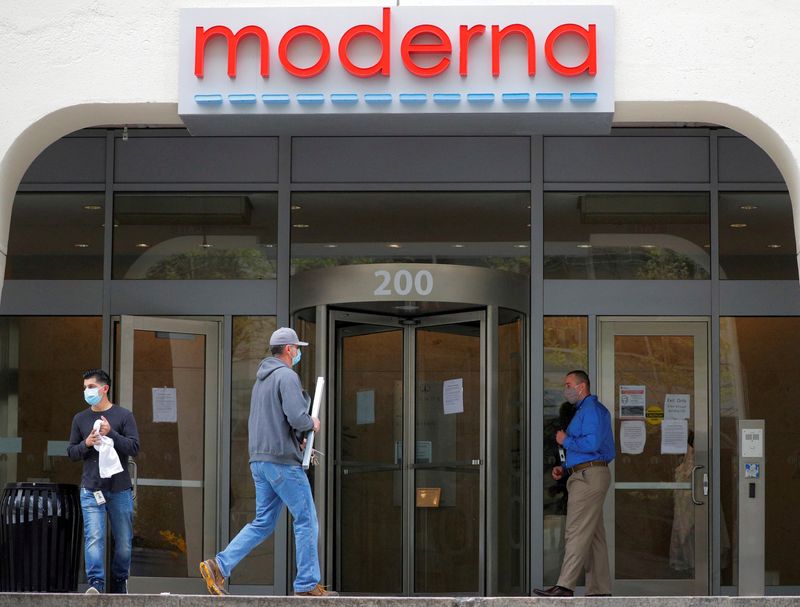By Patrick Wingrove
(Reuters) -Moderna and rival Pfizer (NYSE:PFE) on Wednesday said their updated COVID-19 vaccines generated strong responses in testing against the highly mutated BA.2.86 subvariant of the coronavirus that has raised fears of a resurgence of infections.
Moderna (NASDAQ:MRNA) said its shot generated an 8.7-fold increase in neutralizing antibodies against BA.2.86 compared with an untreated natural antibody response in clinical trials in humans. The variant is currently being tracked by the World Health Organization (WHO) and the U.S. Centers for Disease Control and Prevention (CDC).
“We think this is news people will want to hear as they prepare to go out and get their fall boosters,” Moderna head of infectious diseases Jacqueline Miller said in an interview, adding that the data should also help reassure regulators.
Pfizer said its updated vaccine with partner BioNTech elicited a strong antibody response against BA.2.86 in a preclinical study in mice.
Moderna, Pfizer/BioNTech and relative newcomer to the COVID vaccine market Novavax (NASDAQ:NVAX) have created versions of their shots aimed at the XBB.1.5 subvariant, the dominant variant through most of 2023. Those are expected to be rolled out this autumn.
Moderna shares were down 1.6% and Pfizer shares were off nearly 3% in afternoon trading.
TD Cowen analyst Tyler Van Buren said Wednesday's news was unlikely to raise the share price because people already assume the mRNA vaccines will continue to be effective against new COVID variants as they crop up. Both the Moderna and Pfizer/BioNTech shots are based on mRNA technology.
"This was not an anticipated catalyst that people were waiting for," he said, adding that Moderna continues to be a favorite target of Wall Street short sellers who bet that shares will fall.
The CDC has previously indicated that BA.2.86 may be more capable of causing infection in people who previously had COVID or were vaccinated with previous shots. The Omicron offshoot carries more than 35 mutations in key portions of the virus compared with XBB.1.5, the target of the updated shots.
Moderna said it had shared the new finding on its vaccine with regulators and submitted it for peer review publication. The retooled shot has yet to be approved by the U.S. Food and Drug Administration, but is expected to be available later this month or in early October.
Last month, Moderna and Pfizer each said their new vaccines appeared to be effective against another new subvariant of concern dubbed EG.5 in initial testing.
European regulators have since backed the Pfizer/BioNTech shot, with Britain's Medicines and Healthcare products Regulatory Agency approving the vaccine on Tuesday, but have yet to make any announcements on Moderna’s updated vaccine.

BA.2.86 has now been detected in Switzerland and South Africa as well as Israel, Denmark, the U.S. and Britain according to a WHO official.
While it is important to monitor the variant, several experts told Reuters it is unlikely to cause a wave of severe disease and death because of immune defenses built up worldwide from mass vaccination and prior infection.
